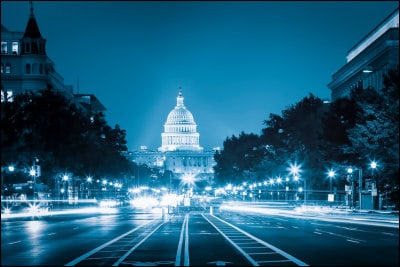 The District of Columbia recently amended its D.C. Domestic Partnership Judicial Determination of Parentage Amendment Act (aka D.C. Parentage Act) to allow some non-D.C. residents additional adoption rights. The amendment, which took effect in March 2013, allows D.C. courts the power to grant an adoption to any child who is born in the District, even if the family does not reside in D.C.
The District of Columbia recently amended its D.C. Domestic Partnership Judicial Determination of Parentage Amendment Act (aka D.C. Parentage Act) to allow some non-D.C. residents additional adoption rights. The amendment, which took effect in March 2013, allows D.C. courts the power to grant an adoption to any child who is born in the District, even if the family does not reside in D.C.
The original D.C. Parentage Act, enacted in 2009, was the first law of its kind in the country. It allowed lesbian couples who were married, registered as domestic partners in D.C., or who signed a Consent to Parent, to adopt children born to the couple in the District. The Act conferred the status of parent on both partners in the couple, where one of the women gave birth to a child using donor insemination and the other woman consented to her partner’s insemination with the intent to be a parent of the resulting child.
The Act, however, did not extend to male same-sex couples. A man cannot bear a child; therefore, he must use a gestational surrogate. But, surrogacy is illegal under D.C. law and so the D.C. Parentage Act does not provide any benefit to male same-sex couples.
The amendment to the D.C. Parentage Act should prove to have a profound effect on lesbian couples living in the Northern Virginia area.
Adoption options for lesbian couples in Virginia are quite limited. Virginia law does not allow for “second-parent adoption”—the adoption of a child by a second parent in the home who is not married to the legal parent of the child. Moreover, Virginia does not allow same-sex marriage, and currently even denies recognition to same-sex marriages entered into in other states (although two pending Supreme Court cases might change that). So, a lesbian couple is effectively precluded from adopting a child together in Virginia. And, where one partner in a lesbian couple gives birth to a child conceived through donor insemination, her partner is precluded from adopting the child. In addition, Virginia law allows adoption agencies to explicitly discriminate against LGBT families in placements for children to be adopted.
But, under the newly amended D.C. Parentage Act, even if the couple lives outside of D.C., so long as the child is born in D.C., a D.C. court will have the power to grant the adoption—and both Virginia and the federal government should recognize the adoption for all purposes. Therefore, a Virginia lesbian couple can carefully plan to have the child born in the District to ensure that both parents secure parental rights through a second-parent adoption.
If you are in a same-sex relationship in Virginia and have legal questions regarding adoption rights, contact us to schedule a consultation with one of our experienced adoption lawyers today.
